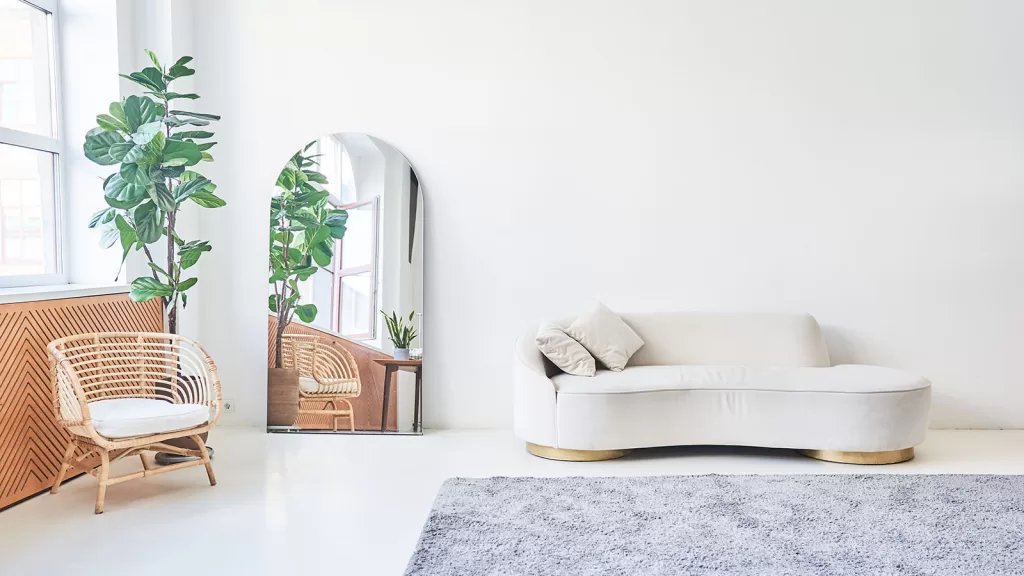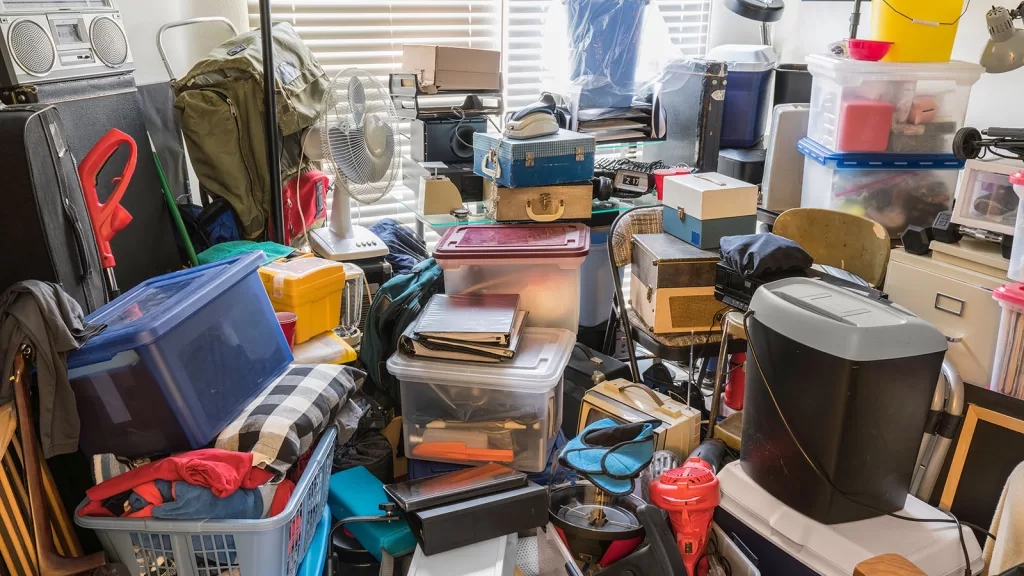Let’s face it: It’s easy to buy too much. And the problem is we don’t know it’s happening until we stop and look at what’s around us.
The clutter.
The mess.
The closest full of stuff that used to be cash.
While having possessions can bring comfort and convenience, owning too much can lead to clutter, stress, and even financial stress.
Here are 12 clear signs that you might own too much stuff and some tips on how to address the issue.
1. Clutter Everywhere
One of the most obvious signs that you own too much is the presence of clutter in your living space. In other words, having stuff everywhere.
If every surface is covered with items, and you find it difficult to keep your home tidy, it might be time to reassess your belongings and maybe hold a garage sale or two to get rid of it.
Clutter can create a chaotic environment, making it hard to relax and focus.
2. Finding Things Is Difficult
Do you often spend time searching for misplaced items? This is a common problem for those with too many possessions. When your home is filled with excess, it becomes challenging to keep track of where all your stuff is.
Simplifying your inventory can help you find what you need more easily.
3. Storage Spaces Are Too Full
If your closets, drawers, and storage units are overflowing, it’s a clear indication that you have more than you need (or not enough storage, but the former is probably more true).
When storage spaces are packed to the brim, it can be difficult to access items and maintain organization. Consider decluttering to free up space and make your home more functional.
4. Emotional Attachment to Objects
A lot of people suffer from this one. While it’s normal to have sentimental items, an excessive emotional attachment to many objects can be a sign of owning too much. If you find it hard to let go of things because of their sentimental value, try to evaluate which items truly hold meaning.
Then, sell or give away everything else. Be ruthless during this process. If it’s not 100% critical that you hold onto it, it’s okay to let it go.
5. Buying Duplicates
Do you often buy items you already own because you can’t find them or forget you had them?
We’ve all done this, haven’t we?
This is a common issue for those with too much stuff. Keeping an inventory of your belongings can help prevent unnecessary purchases and reduce clutter.
6. Feeling Stressed or Anxious
A cluttered environment can contribute to feelings of stress and anxiety.
If you feel overwhelmed by the amount of stuff you own, it might be time to declutter. A more organized and minimalist space can promote a sense of calm and well-being.
7. Unsure Where All Your Money Is Going
Picture this: At the end of the month, you get your credit card bill. It’s bigger than you expected. Then you start to think…where did all that money go? You look around your home and can’t seem to find anything you bought over the past month.
If money seems to keep disappearing but your life isn’t improving, something needs to change.
8. You Tell Yourself, “My House Is Such A Mess”
Listen to yourself, because sometimes, that’s all we need to get moving in the right direction. It’s too easy to say, “I really should declutter” and then simply not do it.
The things we tell ourselves about what we should be doing are usually true.
If you find yourself doing this, it’s probably true. Your house is a mess and you should declutter.
9. Limited Living Space
If your belongings are encroaching on your living space, making it difficult to move around or use rooms for their intended purpose, it’s a sign you have too much stuff.
Reclaim your space by decluttering and organizing your home to better suit your lifestyle.
10. Forgotten Items
Do you often come across items you forgot you owned? This used to happen with me all the time.
This is a clear indication that you have more than you need. Regularly reviewing your possessions can help you stay aware of what you own and make it easier to let go of things you no longer use.
11. Difficulty Cleaning
A home filled with too many items can be challenging (and time-consuming) to clean.
If you find it hard to dust, vacuum, or mop because of the number of belongings in your way, it might be time to simplify. A more streamlined space is easier to maintain and can contribute to a healthier living environment.
12. Lack of Joy
Finally, if your possessions no longer bring you joy, it might be time to reassess what you own. The things you keep should enhance your life, not detract from it.
Consider adopting a minimalist mindset, focusing on quality over quantity, and keeping only those items that truly add value to your life.
Tips for Decluttering

If you recognize any of these signs in your own life, it might be time to take action. Here are some tips to help you get started:
- Set Goals: Determine what you want to achieve through decluttering, whether it’s a more organized home, reduced stress, or financial savings.
- Start Small: Begin with a single room or category of items, such as clothing or books, to avoid feeling overwhelmed.
- Use the “One In, One Out” Rule: For every new item you bring into your home, let go of an old one.
- Donate or Sell: Consider donating or selling items you no longer need. This can help others and provide you with a sense of accomplishment.
- Look For Support: If decluttering feels daunting, enlist the help of a friend or professional organizer.
By recognizing the signs of owning too much and taking steps to declutter, you can create a more peaceful, functional, and enjoyable living space. Embrace the freedom that comes with owning less and focus on what truly matters in your life.



